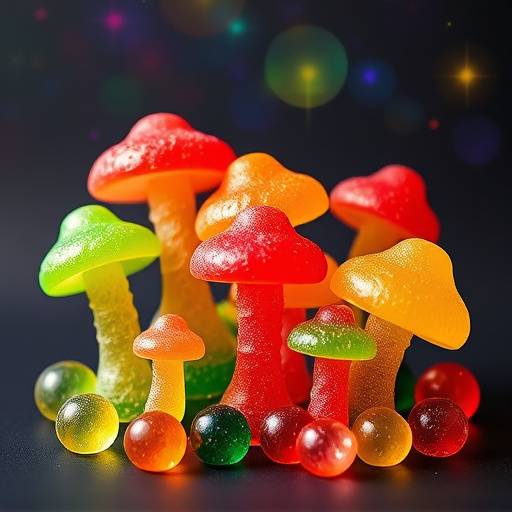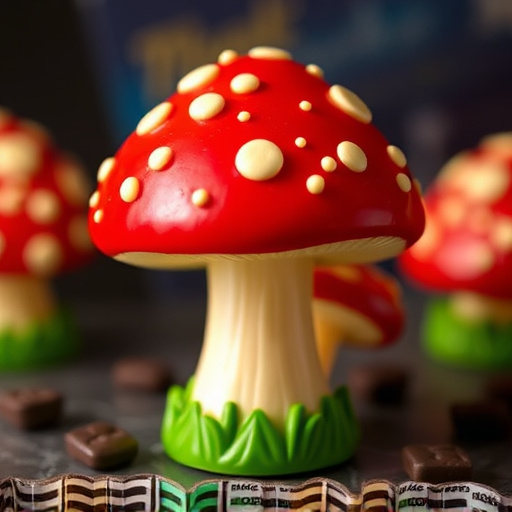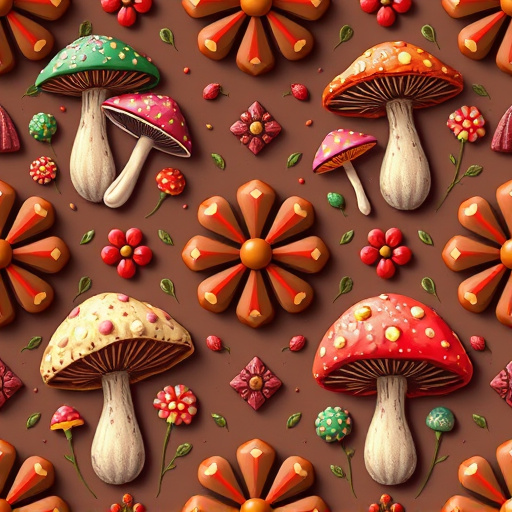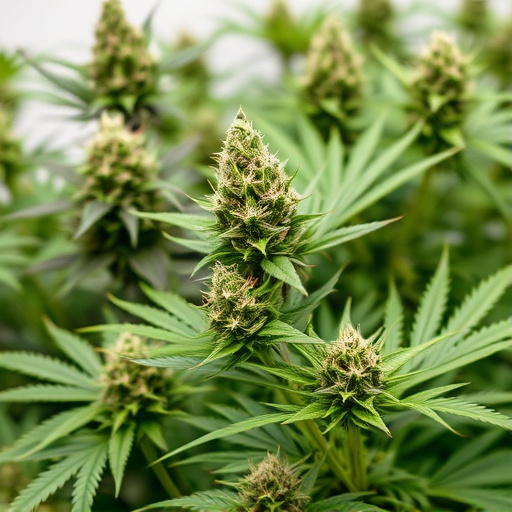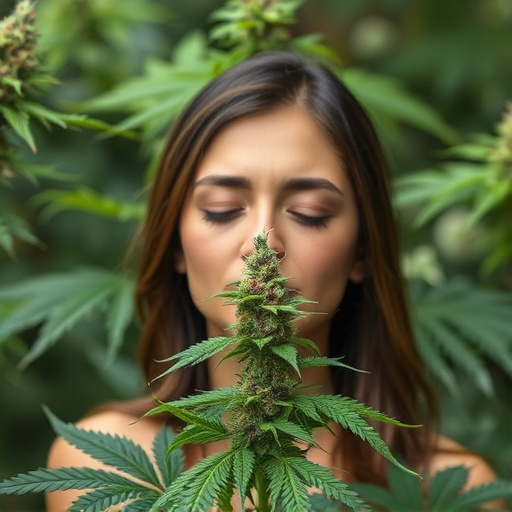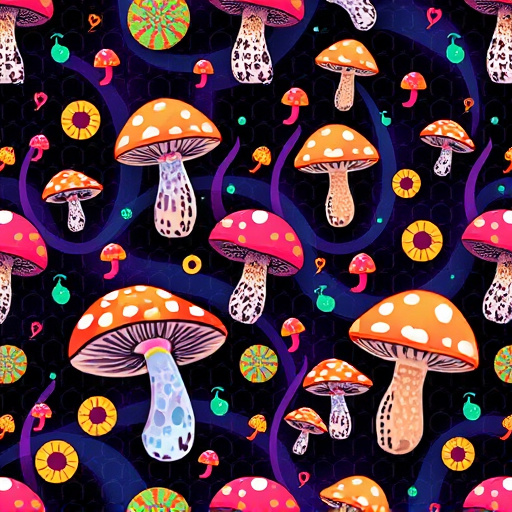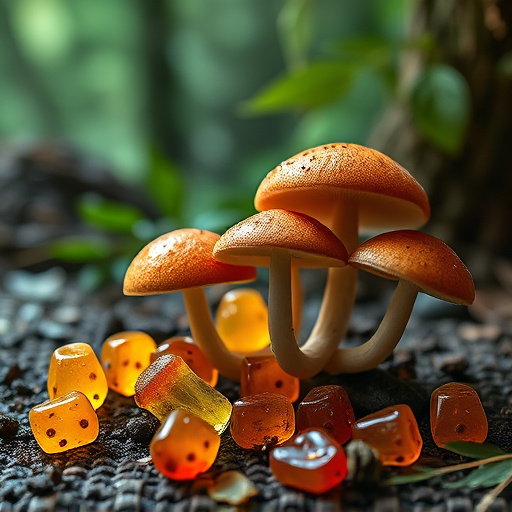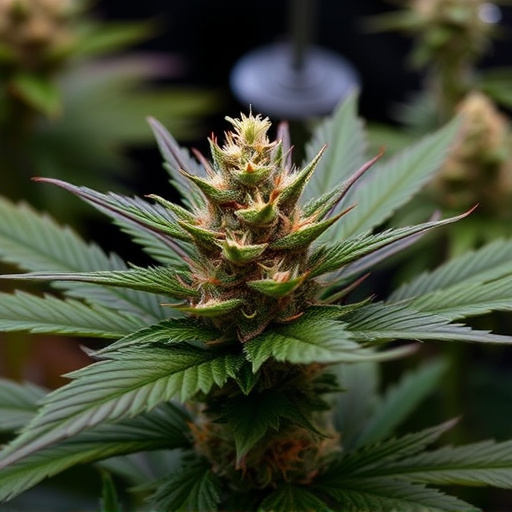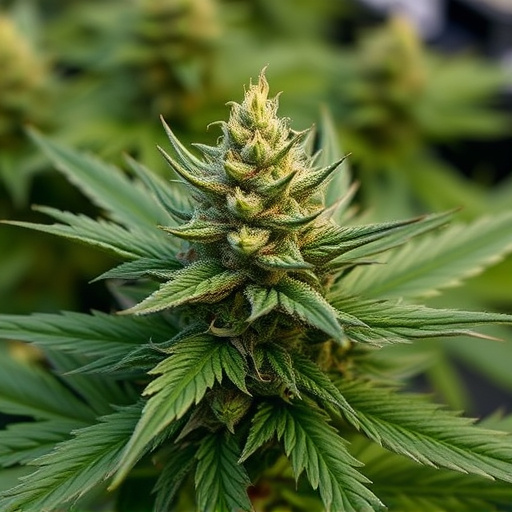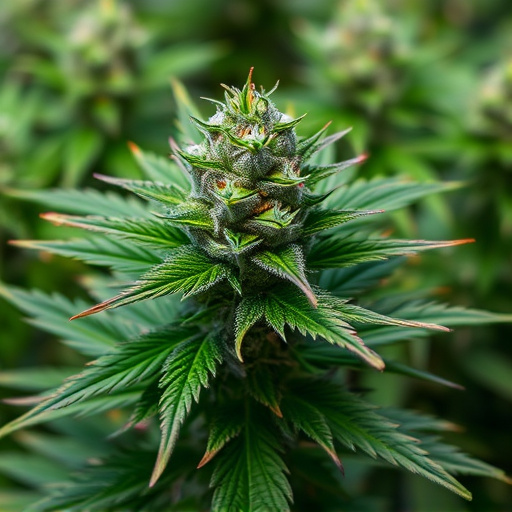The science behind cannabis reveals a complex interaction between its compounds (THC, CBD) and our body's systems, leading to relaxation. THC binds to brain receptors for euphoria and calmness, while non-intoxicating CBD modulates serotonin and has anti-inflammatory properties. The most potent strains of cannabis, rich in both THC and CBD, offer natural stress relief without psychoactive effects, making them valuable tools for managing modern lifestyle stresses.
Unwind and discover the natural relaxing powers of weed. Cannabis has long been recognized for its ability to soothe and calm, going beyond mere recreation. The science behind it lies in the interaction between cannabis compounds like THC and CBD with our body’s endocannabinoid system, triggering a state of tranquility and stress reduction. Explore the most potent strains known for their high CBD content, offering profound relaxation without compromising mental clarity. However, practice responsible use, as moderation is key to reaping the benefits while mitigating potential risks.
- The Science Behind Cannabis and Relaxation
- – Exploring the chemical composition of cannabis, particularly THC and CBD, and their effects on the body's endocannabinoid system.
- – Discussing how these compounds interact with receptors to induce relaxation and reduce stress.
The Science Behind Cannabis and Relaxation

The science behind cannabis and relaxation is a fascinating area of study, uncovering the complex interplay between the plant’s compounds and our bodies’ natural systems. Researchers have discovered that the active ingredients in cannabis, particularly tetrahydrocannabinol (THC) and cannabidiol (CBD), interact with specific receptors in the brain, muscles, and immune system. These interactions can lead to feelings of calmness and relaxation, making cannabis a potential natural remedy for anxiety and stress-related disorders.
Among the various most potent strains of cannabis, those with higher CBD content are often sought after for their relaxing properties without the psychoactive effects associated with THC. CBD is believed to modulate serotonin receptors, influencing mood and emotional responses, while also having anti-inflammatory properties that can help reduce muscle tension and promote overall well-being. This dual action makes cannabis a versatile tool in natural relaxation practices, offering an alternative approach to managing stress in today’s fast-paced world.
– Exploring the chemical composition of cannabis, particularly THC and CBD, and their effects on the body's endocannabinoid system.
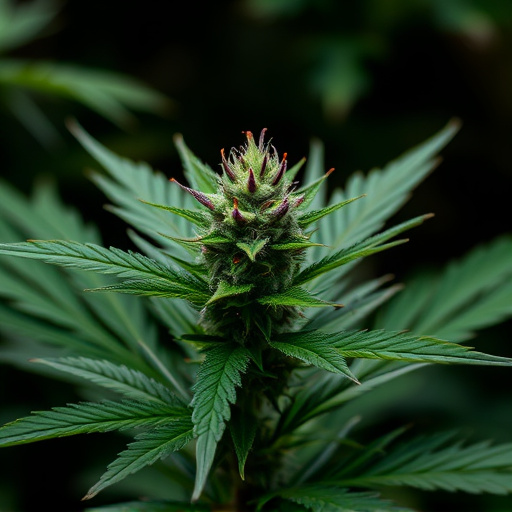
The chemical composition of cannabis, particularly its two most prominent compounds, tetrahydrocannabinol (THC) and cannabidiol (CBD), plays a pivotal role in its ability to induce relaxation. THC, known for its psychoactive effects, interacts with the body’s endocannabinoid system, binding to receptors that regulate mood, memory, and perception of pain. This interaction can lead to feelings of euphoria, reduced anxiety, and heightened sensory awareness—all contributing to a state of calm.
On the other hand, CBD, non-intoxicating and increasingly popular for its therapeutic benefits, has been found to balance the effects of THC. Studies suggest that CBD can counteract THC’s potential anxiety-inducing properties while enhancing its relaxing effects. Moreover, CBD interacts with other receptors in the endocannabinoid system, modulating serotonin and dopamine levels, which are linked to mood regulation and feelings of well-being. Thus, exploring the right balance of these compounds, especially in the most potent strains of cannabis, can offer a natural and effective relaxation aid.
– Discussing how these compounds interact with receptors to induce relaxation and reduce stress.
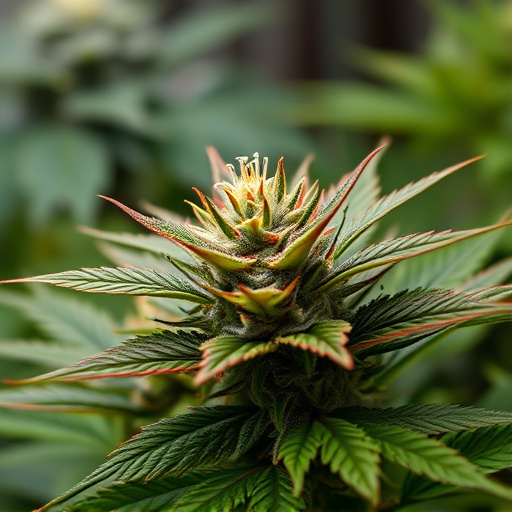
Cannabis contains a variety of compounds, known as cannabinoids, that interact with our bodies’ natural systems to produce various effects, including relaxation and stress reduction. Among these, tetrahydrocannabinol (THC) and cannabidiol (CBD) are most well-known for their calming properties. THC binds directly to specific receptors in the brain, called CB1 receptors, which play a significant role in memory, perception, and emotion. This interaction can induce feelings of euphoria and relaxation, helping to alleviate stress and anxiety.
While THC is often associated with its psychoactive effects, CBD acts differently. It does not bind directly to CB1 receptors but instead influences the body’s response to other cannabinoids and activates certain receptors linked to mood and pain perception. This interaction contributes to a sense of calm without the mental alteration typically associated with THC. Exploring the various most potent strains of cannabis, rich in both THC and CBD, can offer individuals seeking natural relaxants a range of options for managing stress and promoting relaxation.
Cannabis has long been recognized for its potential to soothe and relax, and modern science is unraveling the intricate mechanisms behind these effects. The most potent strains of cannabis, rich in both THC and CBD, interact with our endocannabinoid system, naturally occurring receptors in the body that modulate stress and anxiety. This interaction leads to a cascade of physiological responses that promote relaxation, making cannabis a viable natural relaxant for many. By understanding the science behind these compounds, we can better appreciate the role cannabis plays in navigating stress and finding tranquility.

